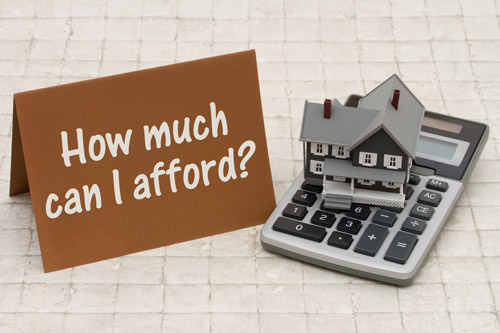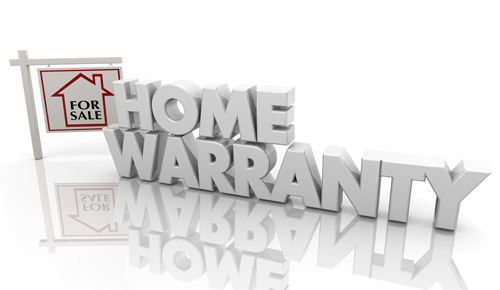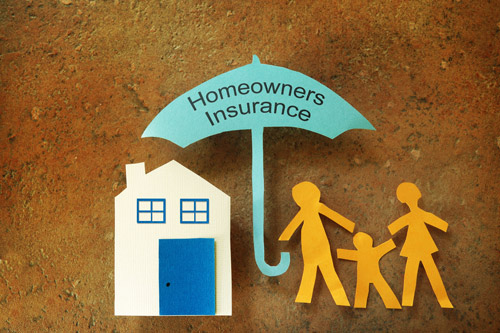How to Buy a Home in Lexington, North Carolina
This comprehensive guide provides the information and tools you need to purchase a home in Davidson County, North Carolina which includes the small towns of Lexington, Thomasville, and Denton. It covers all the aspects of the home buying process from deciding how much you can afford, finding an agent, deciding on your wants and needs, contract negotiations, inspections, what happens at closing and much more. Open a FREE BUYER ACCOUNT to browse all the homes available for sale.
7 Reasons to Own a Home
- Pride in Ownership – The home belongs to you. You can choose the types of upgrades and new amenities that appeal to your lifestyle. You can decorate and paint the walls the color you choose without having to ask permission from a landlord.
- Mortgage payments don’t rise over the years like rent, so your housing costs are stable. But your property taxes and homeowner’s premium may increase.
- A forced Savings Plan. By paying your mortgage, you are investing in your home and building equity.
- Mortgage payments let you build equity. Money paid in rent to a landlord is money you will never see again.
- Tax Benefits – Mortgage interest, property taxes and some of the costs involved in buying a home are tax deductible.
- Appreciation – Real Estate historically has a steady growth in value. Statistics from the National Association of Realtors state that the median single-family existing home sale prices have increased on average 5.25% each year from 1972.
- Capital Gain Exclusion – There is no tax on the profit from capital gains on the sale of a home up to $250,000 for individuals and $500,000 for a married couple. There is also no age restriction.
First Step to Buying a Home
Homebuyers usually have to rely on their borrowing power to buy a house. An important part of buying a home is shopping for the right mortgage loan.
 It is very easy to go online and start searching for homes on the internet these days. Most real estate sites have software programs that allow visitors to set up free accounts and start searching for homes immediately. While this is the exciting part of the process, your very first step should be to contact some lenders to get preapproved or prequalified.
It is very easy to go online and start searching for homes on the internet these days. Most real estate sites have software programs that allow visitors to set up free accounts and start searching for homes immediately. While this is the exciting part of the process, your very first step should be to contact some lenders to get preapproved or prequalified.
This process gives you an idea of how much home you can afford, what type of loan program will work best for your financial situation, and how much down payment you will need. The lender can also give you an estimate of what your closing costs will be. After you have been prequalified or preapproved from the lender, you can start seriously looking at what is available in your price range.
Browse New Homes on the Market in Lexington
Difference between Pre-Qualification and Pre-Approval
A pre-qualification means you have contacted a lender, and based on the information you gave them about your income and debts, they have calculated how much of a mortgage you can afford. The lender will check your credit history. A loan officer from the bank can speak with you over the phone for prequalification. In a prequalification, the lender does not verify the information you provided. Without any obligation from the bank, the lender will help you arrive at the home’s price range you will be able to afford.
A Pre-Approval means you have completed a loan application with the bank and the bank has verified the information on the application and has guaranteed in writing that they will grant you the loan. There are advantages of getting this preapproval. A seller will know you are serious and can afford the property. With the verification process completed, you should also be able to close on the property sooner.
Another reason this is an important first step is sometimes errors, or problems turn up that need to be fixed on your credit report before you can qualify for a loan. It is better to fix these issues before you go under contract on a home.
Home Affordability – Your Purchasing Power
Your purchasing power is the amount of home you can afford to purchase for the budget you have available to spend. As interest rates increase, the price of the house you can afford to buy will decrease. For each quarter of a percent increase in interest rate, the value of the home you can afford decreases by 2.5%. Rates can fluctuate as you look for a home, so ask your lender if you can lock in the rate for a set period.
Financing Your Home
 Generally, you want to look for a home valued between two and three times your gross income, but a financing professional can help you determine the size of loan for which you will qualify. You will need to have money for a down payment, and you will also need money for the closing costs. The amount of your down payment will depend on what type of loan program you are using.
Generally, you want to look for a home valued between two and three times your gross income, but a financing professional can help you determine the size of loan for which you will qualify. You will need to have money for a down payment, and you will also need money for the closing costs. The amount of your down payment will depend on what type of loan program you are using.
There are two major types of loans – conventional loans and non-conventional loans. A conventional loan is any loan that is not secured by a government entity. These loans require a minimum FICO score of 620, and usually, the down payment of 20% is required. However, depending on the buyer’s financial situation there are conventional loans available with less than 20% down, but they do require that the buyer pay mortgage insurance.
Non-conventional loans offer different and more flexible terms. These programs are geared to help the first time buyers achieve homeownership with less than a 20% down payment.
Today loans require a down payment of 3% to 5%, depending on the type of loan product and terms of the loan. With a down payment of 20%, you will be able to eliminate mortgage insurance from your monthly payment. Three popular loan products that are widely used by first-time homebuyers are FHA loans which require 3.5% down payment, a USDA loan which does not require a down payment and VA loans for service-members, veterans or surviving spouses.
Mortgages are available at 15, 20 and 30-year terms for repayment of the loan. A longer term on the mortgage usually means a lower monthly payment. However, shorter terms mean you pay less interest over the life of the loan.
Your monthly mortgage payment to the lender includes the following:
The principal on loan (P)
The interest on the loan (I)
Property Taxes (T)
The Homeowner’s Insurance (I)
Mortgage Insurance Premium (If less than 20% down payment)
Calculate Your Mortgage Payment
Loan Products Used by First Time Buyers
Three popular types of loans that are frequently used by first time home buyer are the FHA loan, USDA loan, and VA loan.
FHA Loan
Let’s start with the FHA loan product. In 1934 the National Housing Act created The Federal Housing Administration. In 1965, the FHA became part of the Department of Housing and Urban Development (HUD). An FHA loan is an insured loan protecting the bank from default. Added to the loan amount is an upfront mortgage premium. Your monthly mortgage payment also includes a monthly annual premium. This insurance protects the bank who issued the FHA loan if the borrower defaults. Not all banks offer FHA loans. The bank must be an approved FHA lender.
An FHA loan requires a 3.5% down payment. This money can come from cash the borrower has saved, or it can be gifted money from a family member. For example, on a purchase price of a $150,000 home, the down payment required to purchase the home would be $ 4,500.00. Additionally, there would also be closing costs needed to close the loan. What makes up closing costs is discussed later in this article. But for now, in negotiating the contract, the seller could pay some of the closing costs for the buyer. Closing costs are a common negotiated item in purchase contracts with first-time buyers.
FHA – 403K Loan
This loan helps buyers purchase fixer-upper properties. Like the standard FHA loan, the buyer must put down a 3.5% down payment. There are two types of 403K loans, the standard, and the streamline. The standard FHA 403K loan can include structural repairs. With the standard FHA 403K loan, a consultant is hired to prepare reports for the bank on the condition of the home. There is a lot of paperwork involved. Loan processing will take a little longer.
The streamlined 403K Loan has become very popular because there is not as much paperwork and reports required. The borrower can get a loan for the purchase price of the home plus up to $35,000 for the repairs needed. The home must appraise, and the applicant must qualify for the loan amount.
USDA Loan
The United States Department of Agriculture and Rural Development guarantee USDA loans. The program was developed to promote homeownership in rural areas. The property has to be in an eligible area to qualify for this loan. There is a website to check the property address. Most of the homes in Davidson County qualify for a USDA loan. A home cannot be inside the city limits. There is no down payment requirement, so a USDA loan is in effect 100% financing. Like the FHA loan, there is an upfront fee added to the loan amount and a yearly fee is included in the monthly mortgage payment. There are income limits to qualify for a USDA loan. Check here to see if a property address qualifies for a USDA loan.
VA Loan
VA loans help service-members, veterans, and surviving spouses become homeowners. Banks and mortgage companies handle VA loans. By guaranteeing the loan, the Veterans Administration enables lenders to offer more favorable terms. One of the great benefits of a VA loan is no down payment requirement, and no mortgage insurance is required. There is a one-time funding fee, and the home must be a primary residence.
Homes for Sale in Lexington, NC under $200,000
11 Reasons to Work with a Realtor
- Ethical treatment. Realtors aren’t just agents but professional members of the National Association of Realtors and subscribe to its strict code of ethics. The code of ethics is based on professional conduct and for the protection of the public.
- Purchasing a home usually requires dozens of forms, reports, disclosures and other technical documents. Your Realtor can help guide you through the transaction.
- Your agent can provide local information on utilities, zoning, schools and more.
- An objective third party who helps you analyze the pros and cons of each property you are considering.
- Advise you on the current Real Estate Market conditions.
- Ensure that you receive and understand all the state and federal disclosure forms in the transaction.
- Recommend inspectors, attorneys, and other professionals and help in scheduling and understanding the complete reports.
- Educate you on the Offer to Purchase and contract contingencies.
- Act as a transaction coordinator with everyone involved and stay on top of the deal so that you close on time.
- Explain the costs associated with purchasing the home.
- Answer all of your questions.
What is Agency in the Real Estate Transaction?
The term “Agency” is used to determine what legal responsibilities your real estate professional owes to you. All states today have laws regarding consumer representation in real estate transactions. Agency was brought about by numerous lawsuits resulting from consumers being unclear as to who the agent was representing. North Carolina has three types of agency relationships – Buyer’s Agent, Seller’s Agent and Dual Agency.
The buyer’s representative (buyer’s agent) works in the buyer’s best interest throughout the home buying process. Here in North Carolina, the buyer’s agent is paid by the seller through the commission split with the seller’s agent. The home seller agrees to this commission split when they sign the listing agreement. In other parts of the country, it might be common practice for the buyer to pay the agent directly through a negotiated fee arrangement.
The seller’s representative (also known as the listing agent or seller’s agent) is hired to represent the seller. It is the listing agent’s job to get the best price and terms for the seller.
A disclosed dual agent represents both the buyer and seller in the same real estate transaction. All parties must give their written informed consent because of the potential for conflicts of interest in a dual-agency relationship.
When you first have contact with a real estate broker in North Carolina, they will explain to you the different types of agency relationships that are available to you and have you sign a North Carolina form entitled “Working with Real Estate Agent.”
Search for the Right Home
 Now you can start looking at homes. You will probably start online by setting up a buyer’s account to view homes in your price range. Most of these accounts will alert you by email when a new listing comes on the market that matches your search criteria.
Now you can start looking at homes. You will probably start online by setting up a buyer’s account to view homes in your price range. Most of these accounts will alert you by email when a new listing comes on the market that matches your search criteria.
Once you start looking at homes, you will see what your price range will buy in size and features.
Next, you will need to develop a home feature and neighborhood wish list. In the feature section be specific including the style of home, number of bedrooms and bathrooms, lot size and other special requirements. Prioritize these features in their importance to you. Is the feature an absolute necessity or is it something you could live without for now?
Make a list of three or four neighborhoods you like. Look for neighborhoods that would best match your personality and lifestyle. Scout out these subdivisions in person by driving by at different times of the day and on weekends to get a feel for the area.
Some Factors to Consider in a Neighborhood:
- Are the other homes in the area well maintained?
- Is there access to major highways and shopping?
- Listen for noise created by roads, railways, public areas, schools.
- Smell the air for adjacent agriculture or commerce nearby.
- Research things like soil and water.
- Look at traffic patterns around the subdivision at different times of the day and drive from the area to your job.
- Does the community belong to a Homeowner’s Association?
- Is the neighborhood close to things you enjoy doing?
- Who is responsible for the roads in the community?

Remember, the surrounding homes affect the value of your home. A home is not a stand-alone item, so always think of resale. This desirability and resale value of your property depends on location more than any other factor. Buyers want a desirable community that includes character, quality of schools, access to work, highways, recreational facilities, shopping, and medical facilities.
There is no “right” time to buy. It depends on each buyer’s desires, needs, and financial situation. Don’t risk losing the perfect home now because you are trying to guess where the housing market and interest rates are going. Remember, no house is ever perfect. The property might be in the right location, but the lot is smaller than you wanted. The kitchen may be perfect, but the home does not have a fenced yard. When viewing homes decide what is important to you and make a list of your top priorities and focus on the things that are most important to you. Be ready to make a decision, especially in markets with a low inventory of homes. Frequently, home buyers miss out on the first home they wish to purchase because they did not act quickly enough.
Making an Offer
 Once you have found the home you want to buy, you need to place an offer to reach an agreement on the purchase price and other terms. Oral promises are not legally enforceable when it comes to the sale of real estate.
Once you have found the home you want to buy, you need to place an offer to reach an agreement on the purchase price and other terms. Oral promises are not legally enforceable when it comes to the sale of real estate.
Your agent will research recent sales in the community to give you an idea of the property values. Understanding the type of real estate market in the area is a critical factor to consider when you are writing the offer. In a seller’s market, you might not have as much wiggle room in negotiating the price and terms. Your agent will prepare the offer and go over it with you for your signature. Next, they will send it to the listing agent to present to the seller for their consideration. The sellers can then accept the offer as is and sign, submit a counter-offer to you changing some of the terms or reject the offer.
Due Diligence in the Residential Offer to Purchase
Due Diligence gives the buyer a negotiated time frame in the contract to investigate the property, order needed inspections and applying for their loan. Besides the timeframe for the buyer’s due diligence, buyers negotiate with the seller a due diligence fee. This fee is to compensate the seller for taking their home off the market. The due diligence fee is an additional fee on top of the earnest money. The seller receives the due diligence check. If the home closes, the amount of this fee shows as a credit on the buyer’s closing disclosure. However, if the buyer for some reason decides to walk away from the transaction before the end of the due diligence period, they do not get the due diligence money back. Most buyers will request a 30 day due diligence period.
What does a Home Inspection Cover?

It is a good idea to have a home inspection performed on any property you decide to purchase. The cost of a home inspection is dependent on the size of the home, with most costing in the range of $375 – $475. There may be issues with the home that are not visible by just viewing the home. The state of North Carolina requires that Home Inspectors be licensed. Your inspector will schedule an appointment to view the home and prepare a report on their findings. The areas included in a home inspection are:
General Structure
Roof and Attic
Foundation
Electrical System
Plumbing System
The report is intended to identify major damage or serious problems or defects in the home. Should serious problems show up, the inspector will recommend that a structural engineer or some other professional inspect the property as well.
In North Carolina, after completion of the home inspection, the buyer submits a Due Diligence Request and Agreement to the seller requesting that certain items be repaired or replaced. This repair request will start another round of negotiations between the buyer and seller. This document typically references the home inspector’s report
The seller will review the report and decide if he wants to fix any of the items or not. It is best for both parties to know the costs associated with the repairs before starting any negotiations on them. The seller can also offer the buyer a credit for the requested repairs on the closing statement. However, the lender would have to approve handling the repairs in this way.
What to know about Possible Home Hazards
Radon
Radon is a colorless, odorless gas. Entry points for radon are basements or any area with protrusions into the ground. A radon test can determine if high levels are present. Most home inspectors can also perform a radon test.
Asbestos
Asbestos is a fibrous material. It was once popular as fire-resistant insulation, but in 1985 it was banned. Building materials, floor tiles, roof covering and siding may contain Asbestos. It can enter the air if disturbed or damaged. Homes built before 1985 may have asbestos in their construction materials. Homeowners should be careful in remodeling an older home because disturbing insulation and other materials may cause the asbestos to become airborne. Removing asbestos needs to be done by a trained professional.
Lead
This toxic metal was used in home products for decades and can contribute to several health problems. You can be exposed to lead from deteriorating lead-based paint, pipes, or lead-contaminated dust or soil. Homes built before 1978 may have lead present. In inspecting a home, look for peeling paint and check old pipes.
What is a Home Warranty?
 A home warranty is a service contract covering essential items of the home system components. Items covered typically include the central heating system, air conditioning system, kitchen appliances, washer and dryer, plumbing and electrical systems and roof leaks. When a home component needs repair, the homeowner must contact the home warranty company and arrange for one of their approved service providers to make a service call. The homeowner is also responsible for paying for the first service call.
A home warranty is a service contract covering essential items of the home system components. Items covered typically include the central heating system, air conditioning system, kitchen appliances, washer and dryer, plumbing and electrical systems and roof leaks. When a home component needs repair, the homeowner must contact the home warranty company and arrange for one of their approved service providers to make a service call. The homeowner is also responsible for paying for the first service call.
When you purchase a home, you can buy a home warranty. Included with your closing costs is the premium for the home warranty. The home buyer can renew the coverage after one year. Sellers sometimes offer a home warranty to the buyer when they list their home.
What is Mortgage Insurance?
Mortgage Insurance developed as a way for banks to lend money to borrowers who do not have a down payment of 20%. The policy protects the lender if the borrower defaults on the loan. If the borrower does not repay the mortgage loan as agreed, the bank starts the foreclosure process, and the bank can then file a claim with the mortgage insurance company to offset most of the loss incurred by the bank. Mortgage Insurance is required if the down payment on the loan is less than 20%. The buyer pays the premium for this insurance and it is included with the monthly mortgage payment.
What is Title Insurance?
Title insurance protects your ownership right. In North Carolina, the attorney you hire to handle the closing will check the title on the home and report the findings to the bank and the title company. Even with a meticulous search of the public records, hidden issues with the title may arise months or even years after. Some items covered with title insurance are undisclosed or missing heirs, unpaid taxes and assessments, unreleased mortgages, forgeries and fraud in transferring the title previously.
There are two types of title policies. A lender’s policy protects the bank up to the amount of your mortgage. An owner’s policy protects you from financial loss and legal expenses up to the purchase price of the home. There is a one-time premium payment that is included in the buyer’s closing costs.
What Are Closing Costs?
Closing costs are made up of expenses involved in processing and closing the loan. These costs include lender’s fees, inspection fees, attorney fees, title insurance, prepaid interest charged, escrow for taxes and insurance and other associated items. Your closing costs can range from 2 to 5% of your mortgage loan amount. You will receive an estimate of these costs when you apply for your loan. For example, a home with a purchase price of $150,000. The closing costs could be in a range of $3,000 to $ 4,500. Get an estimate of your closing costs beforehand; so that if you need assistance from the seller, you will have a figure in mind in negotiating the contract.
What Do I Need to Know about Homeowner’s Insurance?
 Banks require that you purchase a homeowner’s policy on the property. The policy will protect you against certain losses and damage. Most banks require that you set-up an escrow account. A portion of your mortgage payment each month will go toward property taxes, assessments, and your homeowner’s policy. When the bills are due, the bank pays them from your escrow account.
Banks require that you purchase a homeowner’s policy on the property. The policy will protect you against certain losses and damage. Most banks require that you set-up an escrow account. A portion of your mortgage payment each month will go toward property taxes, assessments, and your homeowner’s policy. When the bills are due, the bank pays them from your escrow account.
Most homeowner’s policies do not cover flood or earthquake damage as a standard item. If needed, you will have to purchase this type of coverage separately. If your home is destroyed, the money you receive to replace it will only be up to the maximum amount of your coverage. Make it a practice every year to review your policy to make sure your insurance is sufficient.
How long will it take to Close on the Home?
Once you have a signed contract, you can now begin the loan process with your lender. The bank will need a copy of the signed contract and will start verifying all the information on your loan application and order an appraisal on the home. Loan processing is completed in about six weeks. Your agent will check on the progress of your loan with your loan officer so that you will close on time. Here in the Triad Area, the typical time to close once a home is under contract is about six weeks.
What happens at Closing?
The closing is where all the parties to the transaction meet to sign the necessary paperwork and legal documents. The buyer will be signing all the loan documents needed regarding the mortgage. In North Carolina, an attorney handles the title work and closing. They review all the paperwork involved in the transaction and consult with the buyer’s lender. Your attorney holds all the monies involved in the transaction in the law firm’s trust account. After the bank approves all the signed documents, the attorney records the deed at the courthouse. After recording, the lawyer disburses the funds to the appropriate parties.
